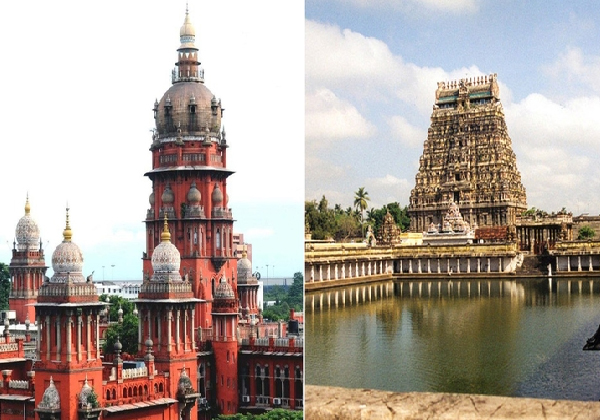Madurai bench of the Madras High Court has questioned the temples’ situation in the state and the government controlling them while quashing the FIR against activist Narasimhan. Hindu Munnani, Temple Worshippers Society chief TR Ramesh, Jaggi Vasudev’s Isha Foundation, Srirangam Rangarajan Narasimhan and others are fighting relentlessly to free the Hindu temples from the government control.
While quashing an FIR against Narasimhan, who alleged mismanagement by officials managing the Sri Ranganatha Swamy Temple, Justice GR Swaminathan at the Madurai bench asked whether temples should continue to be under the thumb of the government, especially since it professes to be secular and claims to treat all religious institutions at par. “Are not knowledgeable and committed activists like Shri T.R. Ramesh justified in arguing that the government should exercise the same degree and level of control over temples as are exercised over churches and mosques?” reports LawBeat.
He said, “Tamil Nadu is a land of temples. They have played a central role in our culture. However, their current condition leaves a lot to be desired. Lands endowed for their maintenance have been gobbled up by private interests. Antique idols have been stolen and smuggled overseas. The temple staff are paid a pittance. Thousands of temples are facing utter neglect. Even poojas are not being performed. Much needs to be done to revive their glory.”
The court was hearing a plea seeking quashing of FIRs, under Section 482 of the CrPC against activist temple Narasimhan, filed on behalf of the temple’s Executive officer after he made defamatory charges against the management on social media under section 505(2) of the IPC. Petitioner Narsimhan said he was targeted as he was exposing several irregularities of the temple management, the commissioner of the HR and CE Department and the Ex-chairman of the Board of Trustees of the temple.
The judge said neither are the FIRs maintainable as FIRs under the IPC cannot be filed on account of alleged defamation, and nor are the ingredients of section 505 (2) IPC present saying the petitioner is a Vaishnavite, and so is the person who has filed the FIR. “The Sri Ranganatha Swamy Temple is the most important Vaishnavite institution, and the fifth respondent is its executive officer,” the judge noted.
He said, “The petitioner’s allegations do not involve two groups at all. The Supreme Court had clearly said the penal provisions could not be imposed unless one group is pitted against the other. FIR under section 45 of the Information Technology Act 2000 against the petitioner is also not maintainable, which provides only a civil remedy and is not a penal provision. Looking at from any angle, the impugned FIRs are not maintainable. Allowing the prosecution to continue would only be an abuse of the legal process. The impugned FIRs are quashed.”



















Discussion about this post